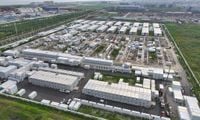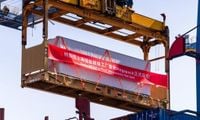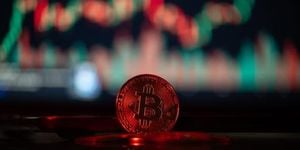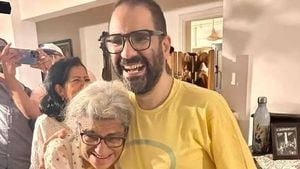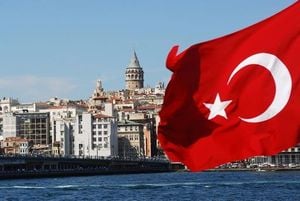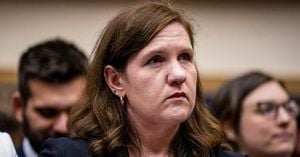Tesla has begun exporting Megapack battery systems from its Shanghai Megafactory, marking a significant milestone in the company's push into the global energy storage market. The first shipment of these Megapacks departed for Australia on March 21, 2025, a development celebrated by Tesla Asia on their official social media account on X.
The Tesla Megapack, capable of storing 3.9 MWh of energy, is explicitly designed for grid use, and according to Tesla, each unit can power approximately 3,600 homes for one hour. This product is just one of the innovations coming out of Tesla's Shanghai Megafactory, which began production earlier this year, around eight months after its groundbreaking in May 2024.
The Shanghai facility has an initial production capacity of 10,000 units annually, translating to around 40 GWh of energy storage. It is expected to significantly enhance Tesla's efforts in energy deployments, with the company projecting a 50% increase year-over-year for 2025.
Mike Snyder, Tesla's vice president of energy and charging, previously highlighted the potential of the Shanghai Megafactory. "The Megafactory gives us the ability to scale production and efficiency. We can lower logistics costs as well as product costs, and grow the business to new markets," he stated. This reflects Tesla's broader strategy not just to manufacture products but to also deepen its presence within China. Elon Musk emphasized this commitment in a meeting with Chinese Premier Li Qiang, stating that "Tesla is willing to deepen cooperation with China and achieve more win-win results."
In addition to the Megapacks, Tesla is making headlines for its ambitious plans regarding the humanoid robot, Optimus. During the Q1 2025 All-Hands meeting, Musk announced that production is set to begin this year, with initial targets aiming for 10,000 to 12,000 units. Looking further ahead, the company plans to ramp up production to an impressive 50,000 units by next year, describing this as creating a "legion" of robots.
"So this year, we hopefully will be able to make about 5,000 Optimus robots. We’re technically aiming for enough parts to make 10,000, maybe 12,000, but since it’s a totally new product with a totally new, like everything is totally new, I’ll say we’re succeeding if we get to half of the 10,000," Musk noted. He humorously added that producing 5,000 robots would be "the size of a Roman legion" and remarked, "I think we will literally build a legion, at least one legion of robots this year, and then probably 10 legions next year."
The Optimus project represents a significant evolution for Tesla, which initially showcased just a mockup of the robot at its AI Day event in 2021. Since then, numerous prototypes have been developed, showcasing the company's rapid advancement in robotics as Tesla aims not only at transforming transportation but also at redefining household and industrial efficiencies through automation.
On the stock market front, Tesla has been facing challenges in 2025, which has led to some public criticism. Minnesota Governor Tim Walz recently made headlines after joking about adding Tesla to his Apple Stocks app to watch the shares fall, given that the company has seen its stock decline significantly this year, down 36% as of mid-March.
In response to Walz's remarks, famed investor Kevin O’Leary lambasted the comments, calling Walz "out of touch" considering the substantial stock ownership held in the Minnesota Retirement Fund, which at one point amounted to 1.6 million shares valued over $319.6 million. O’Leary pointedly remarked, "That poor guy didn’t check his portfolio and his own pension plan for the state. It’s beyond stupid what he did. What’s the matter with that guy? He doesn’t check the well-being of his own constituents."
This ongoing engagement between Tesla and high-profile individuals also includes legal matters. Elon Musk has declared intentions to sue former U.S. Representative Jamaal Bowman over derogatory remarks made on a CNN segment, where Bowman branded Musk as a “Nazi” and a “thief.” Musk responded to this attack via a post on X, declaring, “I’ve had enough. Lawsuit inbound.”
Bowman’s comments have sparked mixed reactions on social media, prompting debates over the validity and consequences of public figures making such allegations against high-profile entrepreneurs. As Musk continues to navigate these challenges, including ongoing protests and vandalism related to Tesla’s operations, his defense strategy aims to counteract the narrative surrounding his leadership and company actions.
Despite external criticisms, the advancements out of Tesla’s Shanghai Megafactory and the ambitious plans for robotic innovation are clear indicators that the company is not slowing down. As they push forward, they remain at the forefront of the clean energy and automation revolution, reshaping the industries in which they operate.
As the company gears up for a year of potential growth, particularly with Megapack exports and the rollout of Optimus robots, it will be interesting to see how Tesla manages to maintain momentum in market interest while handling the external pressures of criticism and legal challenges.
